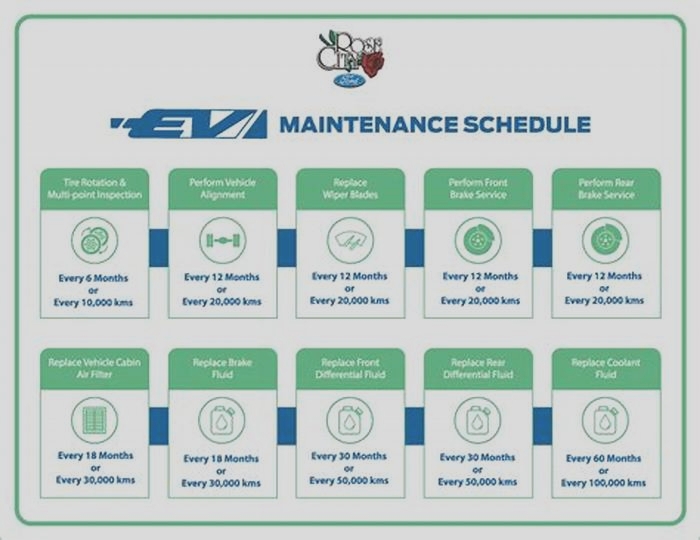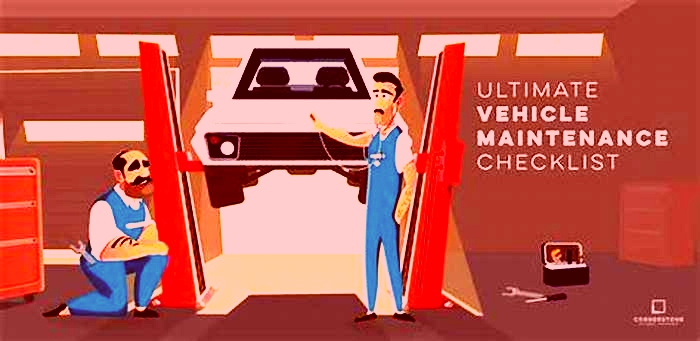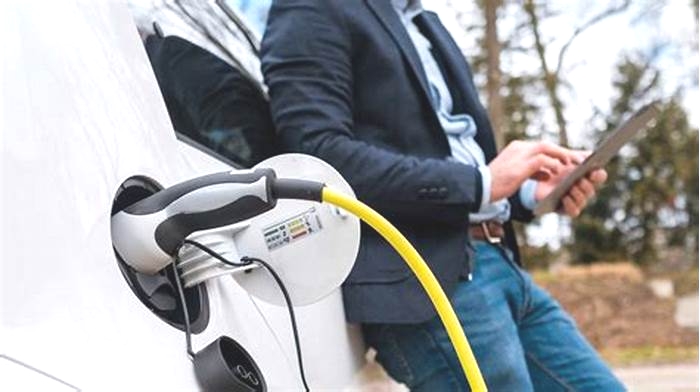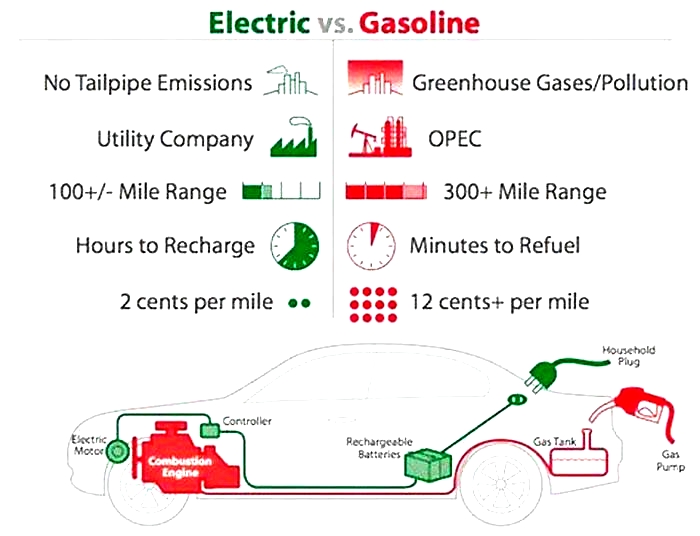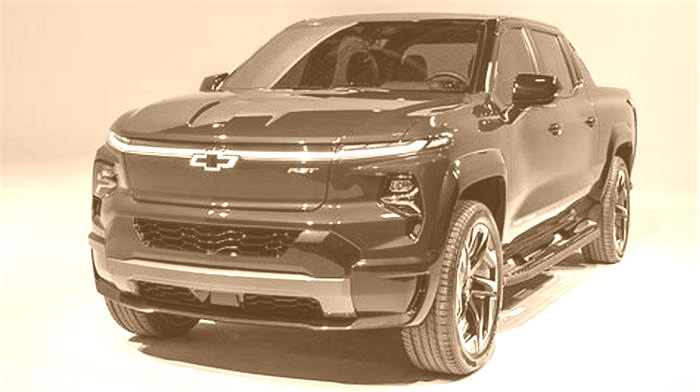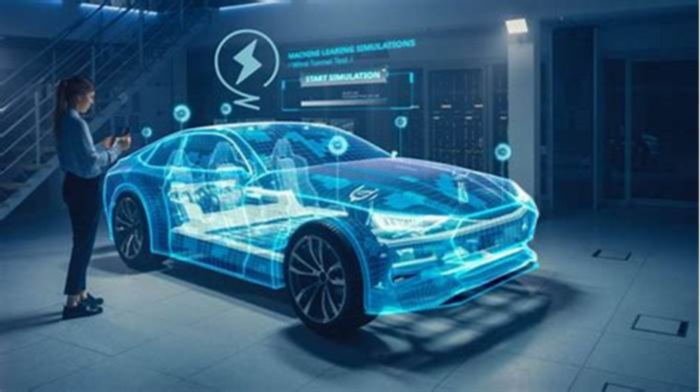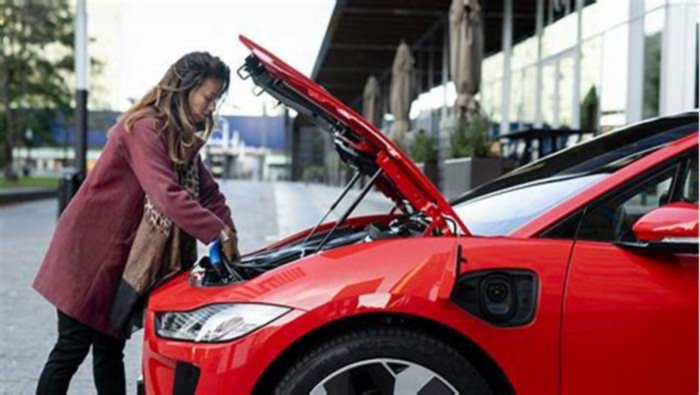EV Maintenance 101 Essential Tasks for Keeping Your Electric Car Running Smoothly
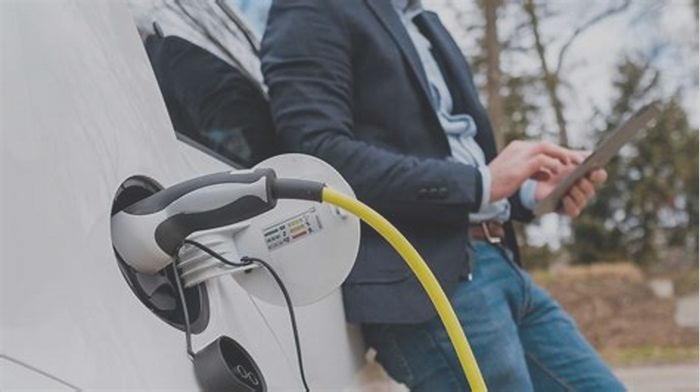
What Maintenance Does an Electric Car Need?
Your electric car does require routine upkeep, but the nature of its maintenance tasks differs due to the absence of an engine, exhaust system, and other components commonly found in gasoline-powered cars.
EV maintenance primarily focuses on the battery, electric motor, and electronics. Since the battery is the heart of your electric vehicle, keeping it in optimal condition is essential for maintaining your cars range and performance.
Regular inspections of the battery pack, as well as proper management of charging habits and thermal conditions, play a crucial role in extending its lifespan. The electric motor and associated electronics also require periodic checks to ensure everything is running smoothly.
Youll still need to pay attention to tire rotations, brake system inspections, and fluid replacements for brake and cooling systems.
Regular software updates are vital for maintaining your electric vehicles efficiency and functionality, helping to maximize its performance and reliability.
Regular Maintenance Procedures
Battery Care
Your EVs battery pack is the heart of the vehicleensure that it receives regular service. Check the battery coolant levels as part of your maintenance schedule to prevent overheating.
While battery replacements can be costly, proper care can extend your batterys lifespan. Always follow the manufacturers instructions for charging and caring for the battery to avoid voiding the warranty.
Tire Maintenance
Regular tire service is vital for safety and vehicle efficiency. Tire pressure should be checked monthly, as incorrect pressure can lead to increased wear and reduced range.
Regular tire rotations help even out tire wear and maintain optimum tread depth, which is crucial for traction. Inspect tires for wear and replace them if the tread depth is below the recommended level.
Braking Systems
EVs feature regenerative braking systems which reduce wear on brake pads and rotors. Despite this, brake parts are not exempt from wear and will need replacement over time.
Ensure brake fluid levels are checked during service intervals, and have brake parts inspected regularly to safeguard against failure.
Cooling Systems
Unlike traditional combustion engines, EVs may have different cooling system requirements to manage battery temperature.
Regularly service the coolant system and top up or replace coolant fluids in accordance with your vehicles specific guidelines to ensure optimal battery operation and prevent damage.
Cabin Air Quality
Replacing cabin air filters is a simple but important aspect of electric car maintenance. This process ensures the air inside your vehicle remains clean by filtering out pollen, dust, and other particulates.
Important: Follow your EVs maintenance guide for when to replace filters to maintain air quality and cabin comfort.
Recommended Service Intervals
Following the advised service schedule guarantees that essential components are checked and maintained timely, averting unforeseen problems.
Manufacturers Service Recommendations
Each electric vehicle manufacturer provides a maintenance schedule specific to their models based on extensive testing and engineering.
For instance, Tesla prescribes different service intervals for their various models, and these are articulated in the owners manuals. Follow these guidelines as they are designed to ensure your vehicle operates efficiently and may also be necessary to maintain the warranty.
- Tesla Model 3: 10,000 miles Tire rotation, balance, and alignment check
- Tesla Model S: 12,500 miles Replace cabin air filter
- Other Electric Vehicles: Approx. every 7,500 miles Check brake fluid and replace if necessary
Understanding Wear and Tear
While electric cars have fewer moving parts compared to conventional vehicles, they arent free from wear and tear.
Items such as brakes, suspension, and tires will degrade over time. You should inspect these parts regularly to determine when repairs or replacement is necessary. Regular service checks help detect early signs of wear, which reduces the risk of larger, more costly issues down the line.
- Brakes: Check every 5,000 miles
- Suspension components: Inspect every 10,000 miles
- Tires: Examine for tread wear and pressure monthly
Determining Battery Health
EV batteries, particularly lithium-ion batteries, have a lifespan that can be influenced by various factors such as driving habits and climate.
Check your vehicles battery health at prescribed intervals to assess capacity and overall performance.
- Battery Check: At least once a year
- Lithium-ion Battery: Expect a service life between 12 and 15 years in moderate climates
Troubleshooting and Repairs
Following the recommended service schedule helps in properly checking and maintaining key parts. This allows you to understand whether you need professional help for certain issues or can handle them yourself. Knowing common problems and what your warranty covers can save you time and money.
DIY vs. Professional Service
Your owners manual is your go-to guide for maintenance and troubleshooting. For basic upkeep such as tire rotation or cabin air filter replacement, DIY can be cost-effective and straightforward.
However, repairs related to the battery pack or electric motors often require specialized knowledge and equipment, making a certified dealership or garage the safer choice.
Common Issues Faced by EV Owners
- Battery degradation: Over time, your electric cars battery may hold less charge. If performance noticeably diminishes, a professional evaluation is recommended.
- Electrical glitches: For software issues or recurring warning messages, a repair at a service center that can perform software upgrades may be necessary.
Warranty Coverage and Limitations
Most automakers provide a warranty that covers major components. Tesla, for example, offers substantial battery and drive unit warranties.
However, limitations exist; normal wear-and-tear items and damage from accidents typically fall outside of warranty parameters. Always check your specific warranty for details to avoid unexpected repair costs.
Enhancing Electric Car Lifespan
Preventive Maintenance Tips
Routine checks are essential for prolonging your cars lifespan. Replace parts such as windshield wipers and cabin air filters regularly to maintain visibility and air quality.
- Battery care: Avoid full discharge; partial cycles are recommended.
- Tire care: Regular rotation for even wear and longer tire life.
- Brake system: Check brake pads and discs, as regenerative braking reduces wear but doesnt eliminate it.
Storage and Charging Best Practices
Storing and charging your EV correctly is vital for battery longevity. Extreme temperatures can impact battery performance and lifespan, so park in a temperature-controlled space when possible.
For charging, using regular home chargers is typically better for your battery than frequent use of fast chargers, as rapid charging can lead to quicker degradation.
- Optimal Charging Range: Keep battery charge between 20%-80%.
- Temperature Control: Store your EV in a garage or shaded area.
Upkeep of Electrical Components
Keep your cars electrical system in top condition through regular service. This encompasses not just the battery but also other electronics, such as onboard computers and sensors.
Periodically inspect and replace any lights or filters to ensure they are functioning correctly. High-quality sealants can also prevent moisture from affecting electrical integrity.
- Electronics inspection: Schedule annual check-ups.
- Component care: Clean and replace filters to maintain airflow and system efficiency.
Understanding Electric Vehicle Safety
Pay attention to your cars servicing needs because good vehicle safety can markedly diminish the likelihood of encountering breakdowns or operational failures.
Impact of Maintenance on Vehicle Safety
Neglecting maintenance can directly compromise the safety of your electric vehicle:
- Brake Fluid and Other Fluids: Although EVs typically have fewer fluids, you should still check levels, such as the brake fluid, to ensure effectiveness and prevent corrosion.
- Service Intervals: Adhering to recommended service intervals allows for a comprehensive multi-point inspection by professionals who can spot potential safety issues.
- Parts Wear: Even though electric cars possess fewer moving parts, components like suspension parts, steering mechanisms, and tires can wear out and pose safety risks if not serviced properly.
Remember, maintaining your EV is not just about extending its lifespanits about ensuring your safety and the safety of others on the road. Regular checks on these key components and adherence to maintenance schedules play an integral role in your electric cars safe operation.
Electric Car Maintenance Guide: Everything You Need to Know
Electric vehicles are a great way to keep maintenance costs low while reducing carbon emissions. In this blog post, we will explain electric car maintenance and compare it to that of gas-powered vehicles. EV maintenance may seem daunting at first, but its quite simple!
Key takeaways
- Electric cars have fewer moving parts as well as innovative features like regenerative braking, resulting in lower maintenance costs.
- Regular tasks such as checking brakes, tires, suspension and fluids keep electric cars running smoothly and safely.
- Electric car batteries typically come with 8-10 year warranties. Follow tips for prolonging battery life.
Understanding electric car maintenance
Electric vehicles provide an attractive alternative to conventional gas-powered cars, especially because of their significantly lower maintenance costs. This is mainly attributed to fewer parts in need of service and features such as electric motors with regenerative braking systems. As a result, running and maintaining an EV proves more straightforward than its combustion engine counterpart.
Regenerative braking
EVs stand out from their gas-powered counterparts due to a feature known as regenerative braking. As the motor slows down the car, it captures kinetic energy and returns it back into its battery pack. This offers a longer brake life along with decreased maintenance costs for electric cars overall.
Essential maintenance tasks for electric cars
An EV owner needs to keep up with routine tasks such as tire care, fluid assessments and suspension maintenance. This will extend your vehicles lifespan significantly while providing a consistent and enjoyable ride.
Tire care
Taking good care of the tires is crucial for electric cars to perform well and ensure safety. Tire rotation should occur every 5,000 to 7,500 miles to maintain peak efficiency. Keep an eye on pressure levels and signs of wear that could indicate potential problems or safety hazards when driving.
Fluids and filters
Check and replace windshield washer fluid, brake fluid, coolant and transmission liquids to prevent potential problems and keep the vehicle running smoothly over time. The cabin air filters are also critical for proper function and comfort.
Suspension
Regular maintenance of an EVs suspension and chassis is crucial in preserving its performance, safety and ride quality. Inspecting the components at least annually or every 7,500 miles (especially if you frequently drive on uneven roads) can help you avoid potential issues.
Electric car battery life and maintenance
EV batteries are generally maintenance-free and typically last anywhere between 8 and 15 years. Its helpful to understand your battery to help keep it in peak condition.
Battery warranty and replacement costs
Most EV manufacturers offer at least an 8-year/100,000-mile warranty on their batteries, some offer up to 10 years. Battery replacements outside of warranty are rare, but if necessary, the cost could range between $5,000 and $20,000 based on the pack, size and manufacturer.
Tips for prolonging battery life
There are various methods to keep your electric cars battery healthy and performing optimally.
1. Minimize exposure to extremely high temperatures when parked.2. Avoid the use of fast charging to avoid battery degradation.3. Maintain an optimal battery charge level between 20% and 80%.
Just by following these 3 tips, you can prolong your battery life and enjoy a powerful driving experience.
Maintenance costs: electric vs. gas-powered cars
Electric cars have significantly lower maintenance costs compared to gas-powered models. No spending money on oil changes, smog tests or belt replacements as electric vehicles lack many of those complex mechanical parts. Overall, EV maintenance costs are estimated to be about 10-30% of a gasoline car.
Although EVs generally have lower maintenance costs than conventional vehicles, individuals should still consider potential expenses. Electric vehicles are heavier than gas-power vehicles and as a result, their tires may need replacing more frequently.
Finding quality EV maintenance services
Maintaining the peak performance of your vehicle relies on high-quality upkeep. While EVs may not require as frequent servicing as non-electric vehicles, they are not exempt from specialized care. Its crucial to entrust your EV to experts or authorized dealers who understand its unique needs. By leveraging their specialized knowledge, you can ensure your vehicle receives the comprehensive care it deserves, keeping it in optimal condition for years to come.
When performing tasks on your own, such as filling windshield washer fluid, changing wiper blades or checking the tire pressure, it is important to take certain precautions. Follow all instructions in the owners manual and make sure to wear safety equipment like goggles and gloves if recommended.
Buying an EV from out of state?
If you found the perfect EV, but its located in another state, simply arrange for it to be shipped to your door. Montway Auto Transport can help. As one of the nations leading auto transport companies, Montway has experience arranging car shipping for all types of cars, including EVs. Request a free instant quote for your vehicle shipment or speak with a Montway service advisor at 888-666-8929 to learn more.
Securing optimal performance
Regularly checking brakes, tires, suspension and fluids are essential to keep EVs running smoothly. By finding certified service centers that specialize in electric vehicle maintenance, you can keep money in your pocket while enjoying its ecological advantages.
Frequently Asked Questions
Do electric cars need maintenance?
Yes. Regular maintenance is just as essential for electric cars as with other vehicles. Despite having fewer moving parts, an EV needs to have components like tires and brakes inspected regularly. The battery pack must be monitored to keep track of any deterioration over time.
What kind of maintenance does an electric vehicle need?
Some maintenance tasks for electric cars include brake pad replacements, tire rotations and cabin air filter replacements. Also, its essential to have the batterys health checked regularly, especially in hotter climates.
How often do you need to service an EV?
Electric cars need to be maintained as per the manufacturers guidelines. Generally, electric cars require a service checkup once a year or every 10,000-20,000 miles.
What is the lifespan of an electric car?
The lifespan of an electric car battery depends on its usage, environment and battery type. Typically, the battery capacity of an electric car reduces to 70-80% of its original capacity in 8 to 10 years. With proper maintenance, an electric car can last for more than 15 years.
What is regenerative braking?
With regenerative braking, energy is recovered and put back into the cars battery. This process can extend the overall range of the vehicle, making it more energy efficient.
How long do EV batteries last and how can I prolong their life?
The batteries of electric cars have an estimated life span of 8 to 15 years, which can be extended by avoiding extreme temperatures, minimizing fast charging and keeping charge levels optimal. EVs tend to use more energy in the winter, reducing driving range, but there are ways to maintain it.

